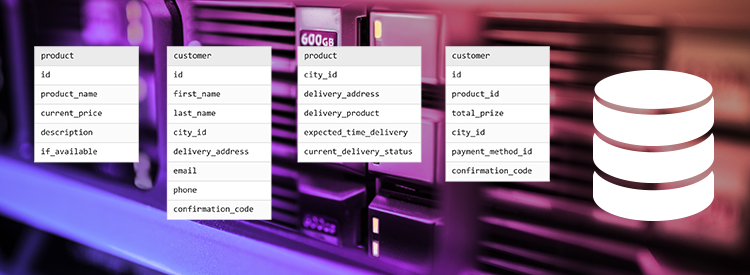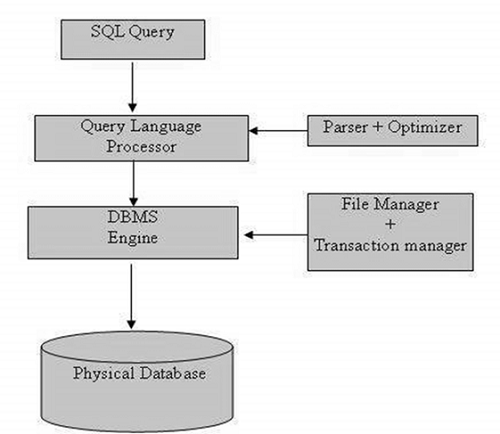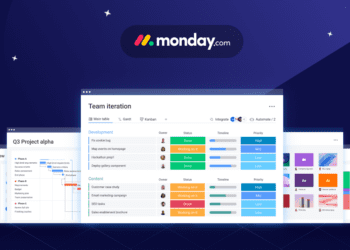It is organizations’ top priority to streamline their processes and optimize their workflows. Enterprise resource planning software is a great way to turn that into a reality. It can also maximize efficiencies and enable better reporting.
But with the vast selection of options, it is time-consuming and overwhelming to find the right solution that meets and exceeds your specific needs and requirements. One of the popular ERP systems is NetSuite.
It is a cloud-based ERP business management platform that is developed for businesses of all sizes. It is the sought-after provider of every important business information, from human resources, sales, finance to marketing, allowing startups, medium-size, and large organizations to access data on their prospective customers, finances, and inventory in real-time.
Established in 1998, NetSuite has already become the leading cloud-based ERP expert in the US and other countries across the globe. It also continues to become the go-to option for many, which is not surprising at all.
But before you invest in NetSuite, there are many things you should learn and understand. Now, where would you start?
An Overview About NetSuite

You probably have heard of NetSuite a couple of times already. What is it, you may wonder. NetSuite, aside from an ERP system, is a database equipped with a intuitive or user-friendly interface. What is a database, though? It is an ingenious way to store any type of information digitally in a computer system. It is controlled by DBMS, which stands for a database management system. The information in any kind of database used in this 21st century is modeled in columns or rows for more efficient, accurate, and better data processing, which can increase your team’s productivity and efficiency.
Who created the most popular database today? It is Oracle, the company behind the success of NetSuite, without a doubt. Apart from the quality features, the database has been around for more than 40 years already and counting.
People were also expecting to integrate the database in NetSuite. The long wait finally ended in 2016 when Oracle acquired the ERP software, which marked the beginning of the NetSuite database, also known as a relational database.
For those who are not that techy, a relational database is composed of mini Excel sheets and individual tables that are associated together. Look at the example below:
Location Record
| ID | Location |
| Loc1 | Seattle, Washington (WA) |
| Loc2 | Denver, Colorado (CO) |
| Loc3 | Boston, Massachusetts (MA) |
Item Record
| ID | Item Name | Location |
| Item1 | Test Item 1 | Loc1 |
| Item2 | Test Item 2 | Loc2 |
| Item3 | Test Item 3 | Loc3 |
Now, what do you observe in the two tables? Yes, they are in a relational database. What else do you notice? The first one is the location record, which may have the same references to other tables in a database, creating a chain and allowing information to be stored or accessed without any trouble.
The second table is the item record, which lists details relevant to the item. The location column, on the other hand, provides reference numbers and links to the ID.
SQL: What Is It?
Since a database is an organized collection of information, how do we access these important details? This is where the user interface of NetSuite and SQL can come to your rescue.
NetSuite SQL (Structured Query Language) is responsible for retrieving information from a database.
How does it work, though? Every time you load items into your account, NetSuite will do all the work. Yes, you read it right. It will basically run an SQL search on the database to help you find what you are looking for instantly.
Before, you needed to browse a pile of folders to find the necessary document. But that will not be the case with SQL. You just have to type the specific name of the folder, and SQL will do the magic. It is convenient, right?
In the workforce, time matters. Every day you have a lot of paperwork to finish and other duties to focus on. And you do not need to spend so much of your time looking for a single document. But if you work in a company with a traditional way of organizing files, it will be exhausting every time you browse shelves of folders, affecting your productivity.
For companies with a poor level of employee efficiency and productivity, investing in a cloud-based database or ERP platform like NetSuite will be of great help. All employees will have enough time to get their job done before the deadline. Their performance will also improve. Plus, high employee satisfaction or engagement will be a reality.
What Are The Other Functions of SQL?

Who says SQL is only designed to help people access information from a database? The truth is that SQL goes beyond that.
It is no wonder it has become popular for many decades already. Below, we present the other functions of SQL. Take a close look at the following:
- It enables users to set permissions on views, tables and procedures as quickly as possible, taking the security of a file to the next level. For that reason, you can be certain that your information will stay confidential and private.
- It allows everyone to create or drop tables and databases like a pro. If you struggle to make or drop tables, that will no longer be a problem with SQL.
- It lets you define and manipulate specific data according to your requirements. You can also do the same thing with a conventional way of storing files. But the former is faster and more seamless.
What Are the SQL Commands?
While there are many SQL commands, the following are the most commonly used:
- DROP. As the name implies, it allows you to remove tables and databases as a whole when the need arises.
- INSERT. You are skilled in developing a product, supervising employees, and increasing sales. But inserting data into a row of a table might not be your specialty. There is nothing to be afraid of, as you can hire a certified professional for your peace of mind.
- DELETE. As the name suggests, this SQL command enables you to remove one or more rows from a particular table in your database.
There you have it. We hope this guide will help you from beginning to end. Enjoy, and we wish you all the best.









